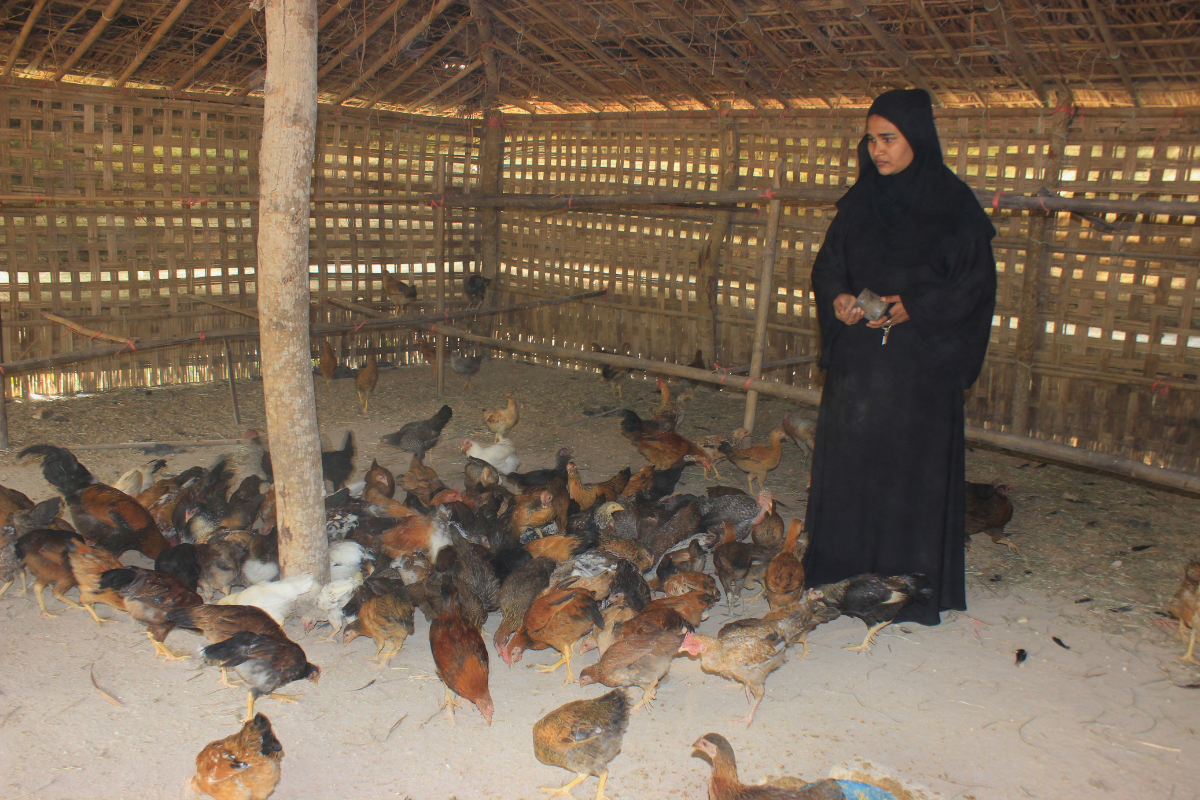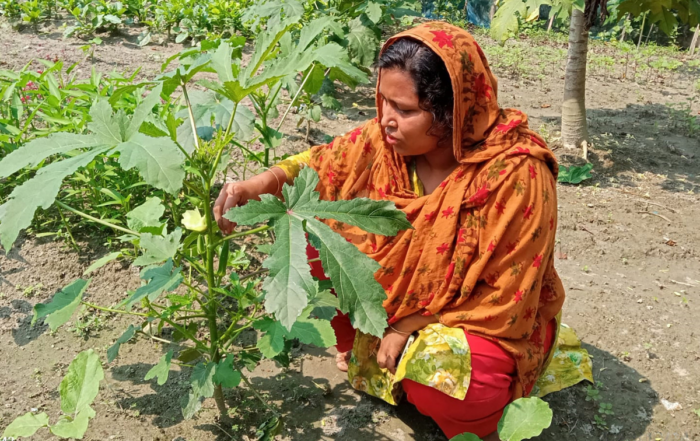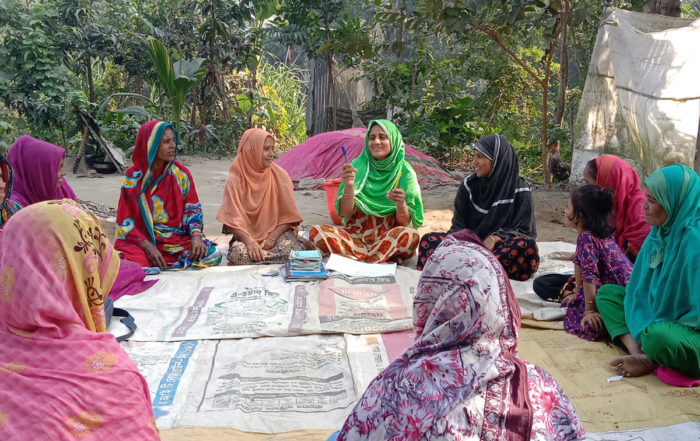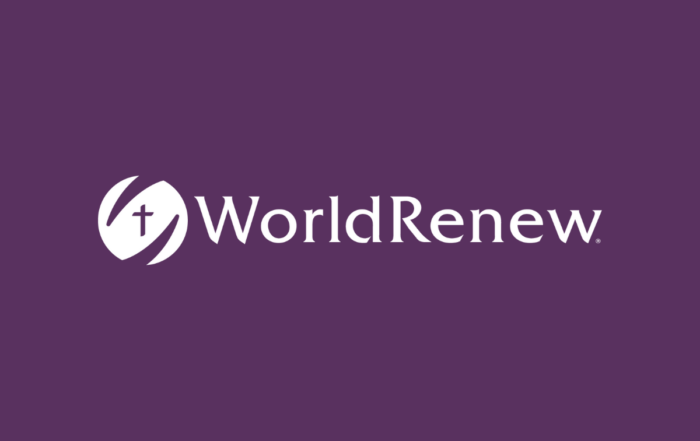Breaking the cycle of injustice
May 3, 2024
Breaking the cycle of injustice
May 3, 2024

Rashida, 24, lives in Hatirgona village in Teknaf, in the Cox’s Bazar District in Bangladesh where the influx of Rohingya refugees has put huge strains on the local community.
Hatirgona is home to 1,300 people, many of whom rely on what they earn from seasonal fishing, agricultural, and non-agricultural labour jobs to survive. But as locals began to compete with Rohingya refugees for job opportunities–jobs that the Rohingya people were willing to take significantly less pay to do–more and more local families began to face severe levels of hunger—including Rashida’s, as her husband, a small trader and day labourer, began to earn less and less.
World Renew, through our local partner SATHI and with funding from Canadian Foodgrains Bank, has been working to help improve the food security of vulnerable local families in Teknaf. But for Rashida, the support she has received has helped address more than food security.
In Rashida’s community, women are often denied basic human rights. Many are forced into early marriages in which they endure physical abuse. When Rashida was first married, she was limited to staying at home, doing chores, and taking care of her two children—but she wanted to break the cycle of injustice that limited her potential.
When SATHI started a women’s group project in her village, Rashida eagerly joined. She became an active member and because of her empathy and desire to help people in need, she was selected to receive training to become a Community Health Counsellor.
She learned about the importance of providing the best care for children in the first 1,000 days of life, including: the benefits of vaccinations, proper health and hygiene practices, proper nutrition, and more. Rashida now teaches pregnant and lactating mothers in her community all the valuable lessons she learned. She also facilitates follow-up meetings for new mothers to provide support and to ensure they are practicing all they learned.
From other training opportunities, Rashida also learned about vegetable gardening and poultry rearing and not only implemented these practices for her family, but also encourages her neighbours to do the same. These opportunities have helped her earn income to help support her family and made her feel more accomplished and more involved in helping people in her community.
Rashida, 24, lives in Hatirgona village in Teknaf, in the Cox’s Bazar District in Bangladesh where the influx of Rohingya refugees has put huge strains on the local community.
Hatirgona is home to 1,300 people, many of whom rely on what they earn from seasonal fishing, agricultural, and non-agricultural labour jobs to survive. But as locals began to compete with Rohingya refugees for job opportunities–jobs that the Rohingya people were willing to take significantly less pay to do–more and more local families began to face severe levels of hunger—including Rashida’s, as her husband, a small trader and day labourer, began to earn less and less.
World Renew, through our local partner SATHI and with funding from Canadian Foodgrains Bank, has been working to help improve the food security of vulnerable local families in Teknaf. But for Rashida, the support she has received has helped address more than food security.
In Rashida’s community, women are often denied basic human rights. Many are forced into early marriages in which they endure physical abuse. When Rashida was first married, she was limited to staying at home, doing chores, and taking care of her two children—but she wanted to break the cycle of injustice that limited her potential.
When SATHI started a women’s group project in her village, Rashida eagerly joined. She became an active member and because of her empathy and desire to help people in need, she was selected to receive training to become a Community Health Counsellor.
She learned about the importance of providing the best care for children in the first 1,000 days of life, including: the benefits of vaccinations, proper health and hygiene practices, proper nutrition, and more. Rashida now teaches pregnant and lactating mothers in her community all the valuable lessons she learned. She also facilitates follow-up meetings for new mothers to provide support and to ensure they are practicing all they learned.
From other training opportunities, Rashida also learned about vegetable gardening and poultry rearing and not only implemented these practices for her family, but also encourages her neighbours to do the same. These opportunities have helped her earn income to help support her family and made her feel more accomplished and more involved in helping people in her community.






